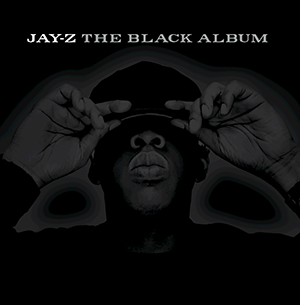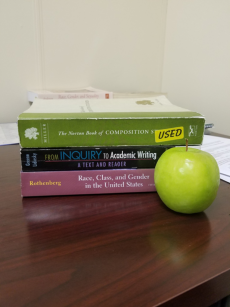This content is being reviewed in light of recent changes to federal guidance.
The Black Album: 15th Anniversary

By: [Robbin Williams]
The Black Album is Jay-Z’s best solo work. Some of this has to do with the time when it came out. In 2003, Jay was arguably the most successful rapper ever. He had survived a beef with Nas, his only real competition for the title “King of New York,” and no one else at the time had the combination of commercial success, street credibility and lyrical skill that created a consensus around Jay; in fact, no one’s rivaled that combination since. He was on the cusp of becoming the president of Def Jam Records, the parent company for his record label and the most legendary company in rap music. So even though “Ether” may have given Nas the win in the midst of their battle (unless you view Nas’s track as a vicious, desperate attempt to defend himself against the fact that “The Takeover” made it clear Jay was ready for action) Jigga’s continued success and diplomacy won the war; Nas signed to Def Jam while Jay was still president of the label. Furthermore, Jay’s subsidiary, Roc-A-Fella Records, was still intact in 2003. The liner notes for Black include a leaflet advertising upcoming projects from the label that included not only Kanye West’s debut album, but also releases from Jay’s loyal homeboy Memphis Bleek, Philadelphia standout Beanie Sigel, Beanie’s crew State Property, high octane New York street act MOP, Harlem’s own Cam’ron and even Old Dirty Bastard, dubbed Dirt McGirt at the time.
Jay released an album full of lyrical songs that could have been singles. He rapped well over stellar production from The Neptunes, Just Blaze and Rick Rubin, not to mention a track where he seemed like he wasn’t even trying, but still had the assurance to refer to himself as the “best rapper alive,” over Timbaland’s irresistible production (“Dirt Off Your Shoulder”). Most rappers would have scrambled to release either “What More Can I Say?,” “Encore,” “Public Service Announcement” or “Lucifer,” so they could chart. But instead, on an album with no rap features, no supportive assists from other proven acts, these songs shine as reminders of how capable Jay-Z was for dolo. Deep cuts like “Moment of Clarity,” produced by none other than Eminem, and “Allure”—which prefigures much of Aubrey Graham’s early career with melancholy singing from Pharrell and introspective, nostalgic, wistfully-delivered lyrics—exhibit an engaging level of depth. “Justify My Thug,” a “clever-on-paper” reworking of Madonna’s hit that would have been acceptable from one of his peers is the album’s only misstep. Sure, it was novel for Jay to reach out to West Coast underground legend DJ Quik for production on the track, but on an album where he’s made it clear what he can do, why would listeners settle for a listless chorus and sometimes-clumsy lyrics that center on hackneyed “both-heaven-and-hell” imagery? Countering that mediocrity, Jay managed to rap an entire song about shooting people, over one of 9th Wonder’s neo-golden age instrumentals, that was both funny and timely. On “Threat,” he spits: “Y’all wish I was frontin’, I George Bush the button/For the oil in your car, lift up your hood, nigga run it/Then lift up your whole hood like you got oil under it,” all in the wake of then-currrent debates about whether the objective in the Middle East was weapons of mass destruction or petro.
It could be argued that rap was more innocent in 2003, which may sound strange if we consider the fact that Tupac and Biggie had already been shot dead for what appears to have amounted to nothing more than rap ego and unnecessarily aggressive competition. But in an era when social media was still nascent, the overexposure of artists, as a result of the endless memory of the internet, hadn’t fully taken effect yet. Kanye West produced two songs on The Black Album, and one of those—“Lucifer”—might have attracted less negative attention then than it does now, after he has recorded an album he called Yeezus, led a tour that featured a Jesus impersonator, and declared on wax that he is “a god.” Similarly, in 2003, Jay could still record a song that features an adoring crowd—as he does on Kanye’s other contribution to Black, “Encore”—without anyone thinking much about the fact that the name that crowd chants is an abbreviation for the unspeakable tetragrammaton of the Hebrew Bible. Jay didn’t just call himself “a god,” he casually referred to himself “the” god. But at that time, he could still throw up his “diamond” hand signal without many people making claims—mainly via YouTube videos—that it was proof of his association with a secret society. The triangulation of artists between old fashioned media and the assortment of more-recent ways we’re granted more access than anyone should have into other peoples’ lives hadn’t made celebrity the hall of mirrors it is now. No one knew who the Kardashians were.
In 2003, Jay hadn’t dismantled Roc-A-Fella yet, embittering several former compatriots and necessitating the PR move of asserting, on Drake’s “Pound Cake,” that he’d “made more millionaires than the lotto did.” Those beneficiaries still made a point of “spilling their feelings in the air,” as Jay notes on Kanye’s “Monster,” and Kanye himself joined their ranks, making remarks that Jay appears to have considered unforgivable in a rift that still hasn’t healed. Jay-Z and everyone around him, besides Kanye, was at the height of their rap prowess when The Black Album came out. He would go on to make bigger business deals than he had at that point, but in the lacuna for rap labels between the fall of Napster and the rise of YouTube’s access to music and, well, everything else, Jay-Z released an album that, for the most part, people had to buy if they wanted to hear. He’s tried to replicate this feat since then, limiting access to his “product” with Tidal streaming service, but his success with that has been dubious.
Jay-Z has released albums that are ambitious since The Black Album, including one that includes the words “Holy Grail” in its title and came out through a trail-blazing partnership with Samsung, ensuring that it was certified platinum on the day it debuted. But his ambition on The Black Album wasn’t a stretch. As he puts it on “What More Can I Say?,” at that time, there had simply “never been a [rapper] this good for this long.” Many will argue that the Jay album that dropped on “the same date as the Twin Towers” is his finest work, and there are certainly compelling points to be made in support of The Blueprint. Many of the elements that make Black what it is were present on that outing, including production from Kanye, Just Blaze, Timbaland and Eminem. But one of the main things people like about Blueprint was the fact that Jay stepped out of character, rapping in a more vulnerable way than had become his custom, seemingly inspired by the soulful production of his accomplices, and allowing us personal insight into his past. Even though Jay did a great job on The Blueprint of providing what some listeners say he should have done more of all along, The Black Album is the best example of him doing what he does best: making polished declarations of his success that are both thoughtful and triumphant. Fifteen years later, these songs still ring true.

Robbin Williams is a PhD student in the English Department at the University of Kansas. In addition to theorizing about connections between hip-hop and countless other aspects of modern life, he’s interested in critical theory and the manner in which ideas about the mind and the body relate to race.